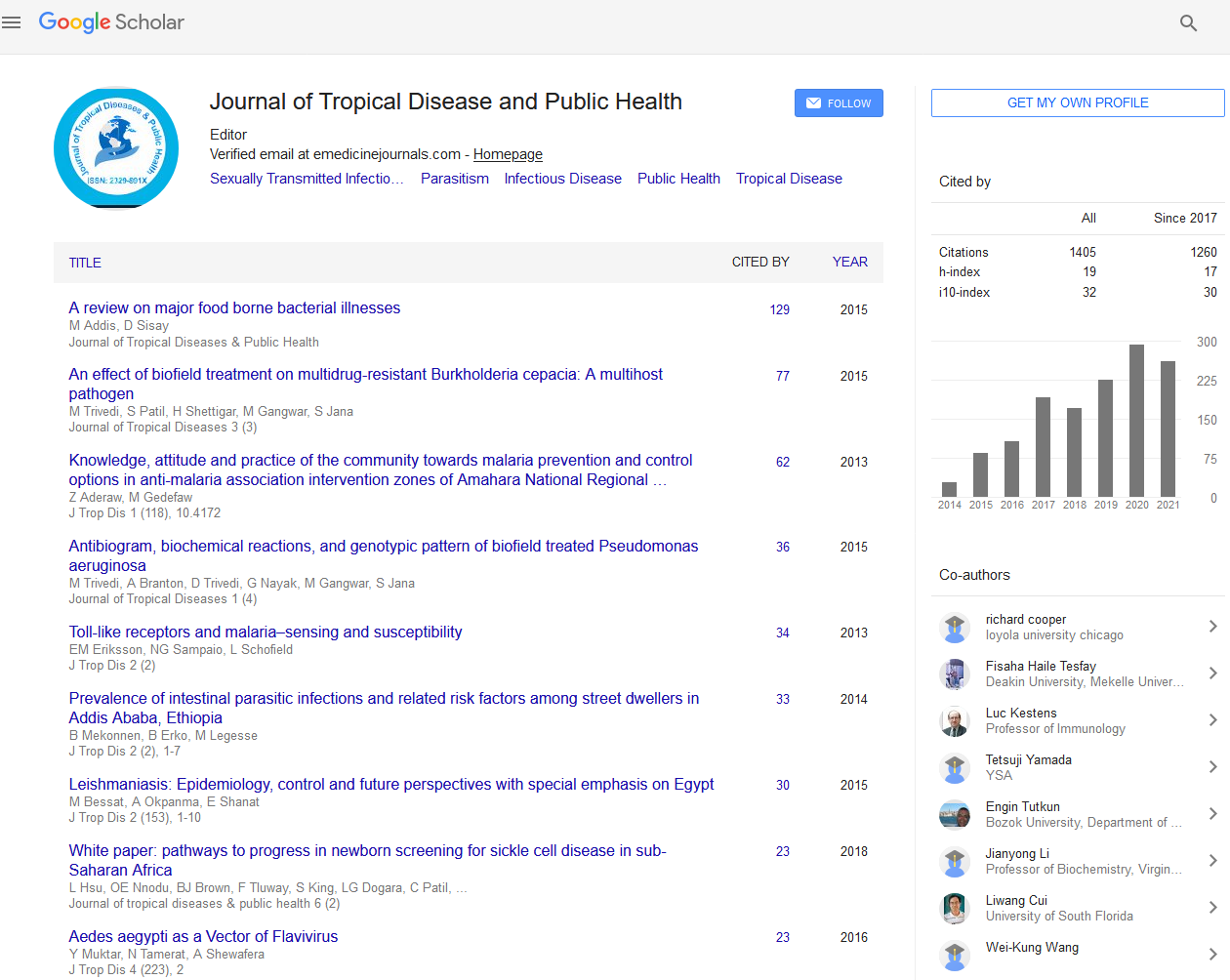Indexed In
- Open J Gate
- Academic Keys
- ResearchBible
- China National Knowledge Infrastructure (CNKI)
- Centre for Agriculture and Biosciences International (CABI)
- RefSeek
- Hamdard University
- EBSCO A-Z
- OCLC- WorldCat
- CABI full text
- Publons
- Geneva Foundation for Medical Education and Research
- Google Scholar
Useful Links
Share This Page
Journal Flyer

Open Access Journals
- Agri and Aquaculture
- Biochemistry
- Bioinformatics & Systems Biology
- Business & Management
- Chemistry
- Clinical Sciences
- Engineering
- Food & Nutrition
- General Science
- Genetics & Molecular Biology
- Immunology & Microbiology
- Medical Sciences
- Neuroscience & Psychology
- Nursing & Health Care
- Pharmaceutical Sciences
Abstract
Undernutrition and Associated Factors among Adult Tuberculosis Patients in Hossana Town Public Health Facilities, Southern Ethiopia
Tarekegn Geberemeskel, Demelash Woldeyohannes and Meaza Demisie
Background: Undernutrition and tuberculosis (TB) are interconnected in a complex relationship. There is a high prevalence of undernutrition among adult tuberculosis patients worldwide, specifically in developing countries including Ethiopia. Tuberculosis patients are more likely to be wasted or have a lower body mass index than the healthy person. Tuberculosis causes undernutrition through raised metabolic demands, by decreasing nutritional intake and by decreasing necessary immune functions. Implementation of WHO recommended services for TB patients are very week, so this study will fill these gaps.
Objective: To assess the magnitude of undernutrition and associated factors among tuberculosis patients at Hossana Town public health facilities.
Method: Institution based cross-sectional study was conducted from November 2015-March 2016 in Hossana Town public health facilities. A total of 247 TB patients were considered for the study. Consecutive study participants were interviewed until the required sample size was reached for each public health facility. Data were entered to SPSS version 20 for statistical analysis. Descriptive statistic, Binary logistic regression was done by using bivariate and multivariate analysis to identify factors associated with undernutrition among TB patients.
Result: The magnitude of undernutrition among adult TB patients was 38.90%. Duration of cough or other TB symptoms before diagnosis of TB (AOR=2.27; 95% CI=1.00, 5.12), family size (AOR=2.98; 95% CI=1.53, 5.83), and HIV co infection (AOR=5.06; 95% CI=2.00, 12.78) were the factors associated with undernutrition.
Conclusion: The magnitude of undernutrition among adult tuberculosis patients was high. Early screening and diagnosis tuberculosis as well as Nutritional status should be part of the routine care for all adult TB patients. In addition, attention should be given to TB-HIV co infected patients.


